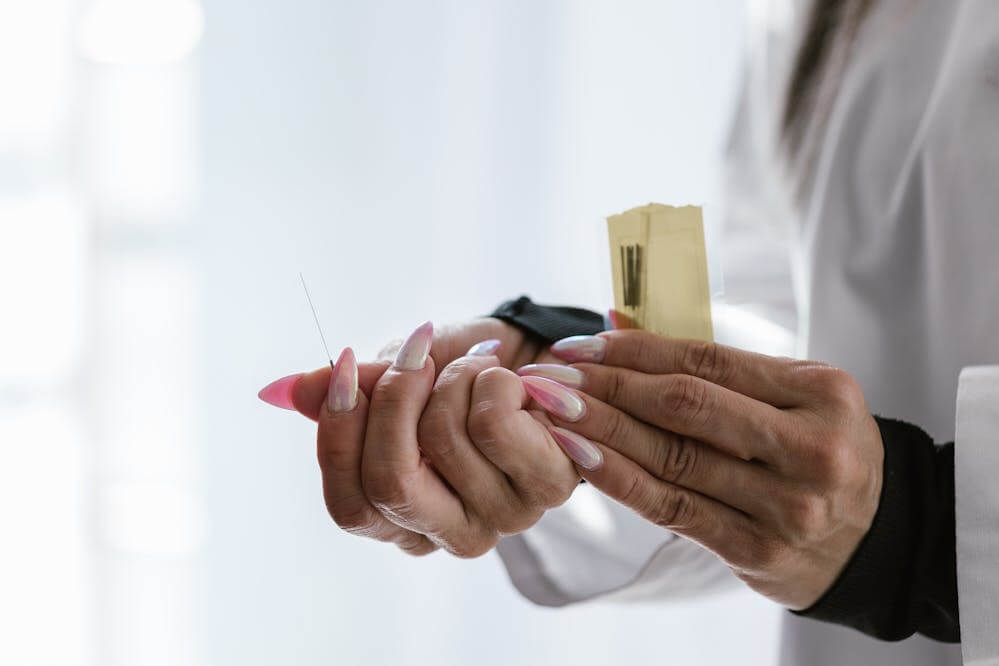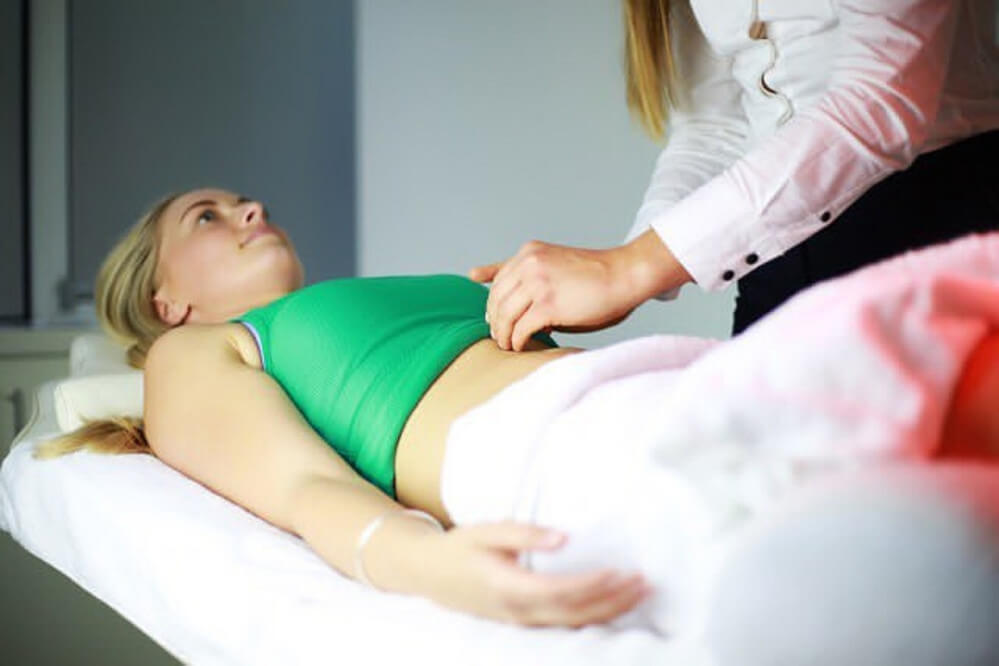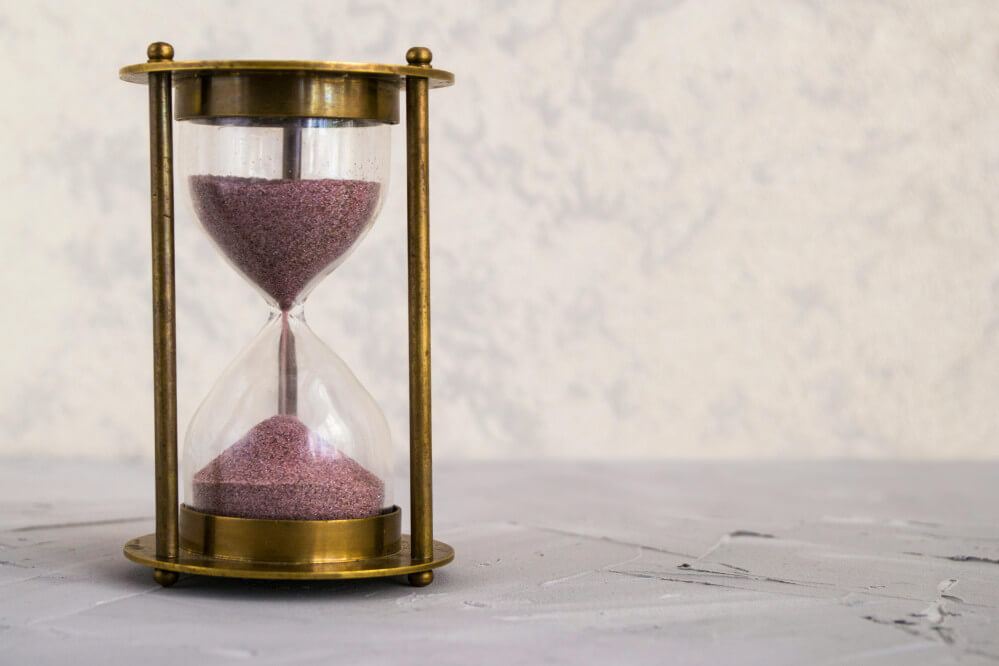Infertility is a condition of the male or female reproductive system, defined by the failure to achieve pregnancy after 12 months. According to WHO, around 17.5% of the adult population, or one in six people worldwide, experience infertility. Among conventional treatments such as medicine, surgical procedures, and assisted conception (intrauterine insemination and in-vitro fertilization), acupuncture stands out as a holistic, complementary treatment for fertility. When used together, acupuncture and conventional therapies can enhance the effects of fertility treatments and provide comprehensive support for overall well-being.
Follow along as we explore how acupuncture for fertility works, discover when it is the best time to get it, how many sessions you need, and more.
What Is Acupuncture?

Acupuncture is an ancient traditional Chinese medicine (TCM) practice that involves inserting thin, metallic needles into certain points on the body (acupuncture points) to promote wellness and alleviate pain. According to TCM, the human body is filled with an invisible life-giving force called ‘Qi,’ which flows in 12 meridians throughout the body. TCM principles emphasize that you experience good mental and physical health when Qi flows well. Contrarily, when Qi is blocked or deficient, it results in pain or illness in the body.
TCM beliefs state that activating acupuncture points leads to a better Qi flow. Western medicine explains how acupuncture works by saying that acupuncture points contain nerve endings and receptors that signal the brain to release endorphins and improve blood circulation when activated.
How Acupuncture Works for Fertility

Fertility issues in both men and women can emerge due to several factors, such as poor-quality sperm, irregular menstrual cycles, stress, and compromised immune systems. Extensive research on the topic shows that acupuncture may help with fertility through several mechanisms, such as:
— Reducing stress and anxiety
— Regulating the menstrual cycle
— Improving blood flow to the reproductive organs
— Improving sperm count and motility
— Increasing the chance of successful pregnancy for women undergoing in-vitro fertilization (IVF).
Below, we’ll delve deeper into some of the main benefits of acupuncture for fertility and the mechanism by which it may work.
It’s important to note that acupuncture may not be effective or even suitable for all fertility issues. Therefore, consult a specialized acupuncturist in fertility treatment to assess your situation and create a personalized treatment plan to improve outcomes.
Acupuncture regulates female reproductive hormones
It’s widely known that imbalanced hormones have a negative impact on fertility. As a holistic treatment, acupuncture can help improve the production of female reproductive hormones related to fertility and bring overall balance to the body. A review of several studies shows that acupuncture can help increase estrogen, prolactin, progesterone, and other hormones. Moreover, by balancing the levels of these hormones, acupuncture may help prepare your body for fertility treatment.
Acupuncture also plays a crucial role in regulating the menstrual cycle. Although the actual mechanisms of acupuncture are still unclear, preliminary data indicates that acupuncture may improve menstrual health for women experiencing delays in falling pregnant.
Acupuncture improves blood flow and egg quality
Among the most prominent benefits of acupuncture is that it can increase blood flow. Increased blood circulation to the reproductive organs, particularly the uterus and ovaries, can improve the quality and quantity of eggs, as well as the thickness of the uterine lining. In other words, a well-nourished uterus and ovaries can increase one’s chances of conceiving. The improved functioning of the ovaries also leads to higher-quality eggs during assisted fertility treatments.
Acupuncture improves sperm quality and quantity
While infertility affects 15% of couples globally, males contribute to 50% of infertility cases overall and 20-30% of cases solely. As a complementary treatment, acupuncture therapy for men can help improve semen quality and fertilization rates.
Research on the effect of acupuncture on semen parameters and sperm quality further proves its benefits on fertility. Acupuncture may significantly improve sperm motility and sperm concentration. Moreover, it may also help men diagnosed with infertility due to reduced sperm activity.
Acupuncture helps with embryo implantation
Acupuncture can also aid fertility by supporting embryo implantation in the uterus, thus increasing the chances of a successful pregnancy. Embryo implantation depends on several factors, including a good blood supply to the uterus, which is critical for IVF conception rates. Acupuncture helps increase blood flow to the uterus and ovaries, positively impacting the chances of successful embryo implantation.
Embryo implantation also relies on the proper functioning of the immune system, and successful pregnancy outcomes involve maternal immune modulation during embryo implantation. Fortunately, acupuncture can help regulate immune function, which can support fertility and embryo implantation.
Acupuncture reduces anxiety and stress
Stress can have a negative impact on fertility. Research shows that it can significantly reduce the probability of conception each day during the fertile window. Stress also plays a detrimental role in semen quality in fertile men.
However, it’s only natural to feel stressed and anxious after an infertility diagnosis, follow-up appointments and failed in-vitro fertilization treatments. As a known stress reliever, acupuncture can help reduce concentrations of cortisol or the stress hormone in the body. Thus, it can increase your chances of conceiving.
When Is the Best Time to Get Acupuncture for Fertility?

Fertility outcomes tend to improve when acupuncture is paired with prior treatment for several months before the anticipated treatment. We recommend starting acupuncture treatment three to four months before you hope to get pregnant or before progressing to insemination, in-vitro fertilization, or donor egg transfer. This is because both sperm and eggs take approximately 90 days to develop.
For women, we recommend following the protocol below for three consecutive cycles:
— First acupuncture session: During the follicular phase (day four or five)
— Second acupuncture session: During ovulation, which is the optimal time to have acupuncture for fertility
— Third acupuncture session: During the luteal phase after ovulation
— Fourth acupuncture session: During menstruation.
How Many Sessions of Acupuncture Do You Need for Fertility?
There isn’t a standard answer for the number of acupuncture sessions needed for fertility, as the number depends on your medical history, individual needs, and response to the treatment. However, research shows that the live birth rate increased in patients who received nine to 12 sessions before IVF treatment and on the day of embryo transfer.
As acupuncture is accumulative and has better outcomes with regular treatment, your acupuncturist may recommend weekly treatment.
Potential Risks and Considerations
The National Center for Complementary and Integrative Health (NCCIH) considers acupuncture a safe treatment when acupuncturists use sterile, proper equipment. However, in rare instances, acupuncture can cause serious adverse effects, such as infections, punctured organs, and injury to the central nervous system, when not delivered properly. Therefore, make sure to receive acupuncture from a licensed practitioner.
When done correctly, acupuncture can have a few mild, short-term side effects, such as:
— Pain, bleeding, or bruising where the needles puncture the skin
— Drowsiness
— Dizziness or fatigue.
If you have a bleeding disorder or take anticoagulant medicine, before seeking acupuncture treatment, you should talk to your primary care provider. We also don’t advise acupuncture if you have a metal allergy or have an infection in the area where needles may be inserted.
If you are considering acupuncture treatment for fertility, it is important to be aware that it may increase the risk of miscarriage if incorrect acupuncture points are used during pregnancy. Therefore, we recommend that you seek treatment from an acupuncturist who specializes in treating fertility disorders to ensure that the correct acupuncture points are targeted.
The Bottom Line
Fertility issues can arise in both men and women due to various factors such as poor-quality sperm, irregular menstrual cycles, stress, and a weakened immune system. Research on the topic indicates that acupuncture can assist with fertility through several mechanisms, including reducing stress and anxiety, regulating the menstrual cycle, improving blood flow to the reproductive organs, boosting sperm count and motility, and increasing the likelihood of successful pregnancy for women who are undergoing in-vitro fertilization (IVF).
Whether you’re interested in trying acupuncture as a complementary treatment for fertility or to reduce stress and improve overall well-being, check out our Holistic Wellness Center in Columbus, OH. We’re here to help you achieve your health goals.
Frequently Asked Questions (FAQs)
Where is the best acupuncture point for fertility?
The best acupuncture points for you depend on your specific needs and underlying causes of infertility. The most common acupuncture points used for fertility treatments fall into Ren and Du meridians. Some of them are Ren-4, Ren-6, Spleen-6, Kidney-3, and Liver-3.
What are the chances of getting pregnant with acupuncture?
According to research on the effects of acupuncture on rates of pregnancy and live births among women undergoing in-vitro fertilization, acupuncture increased the odds of clinical pregnancy by 65% compared to controlled groups.
How long does acupuncture take to work for fertility?
Research on the impact of whole-system traditional Chinese medicine on in-vitro fertilization outcomes concluded that live birth rates increased in patients who received nine to 12 acupuncture sessions prior to IVF and treatment on the day of embryo transfer.